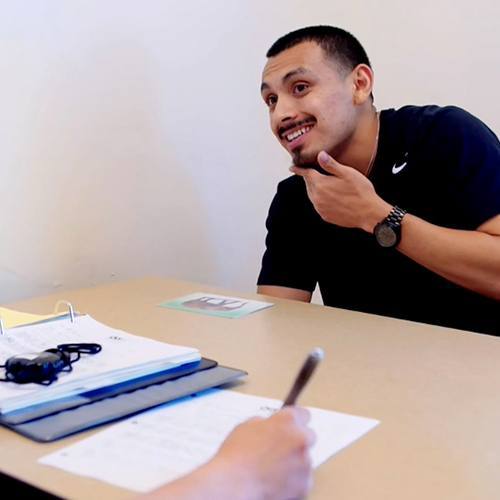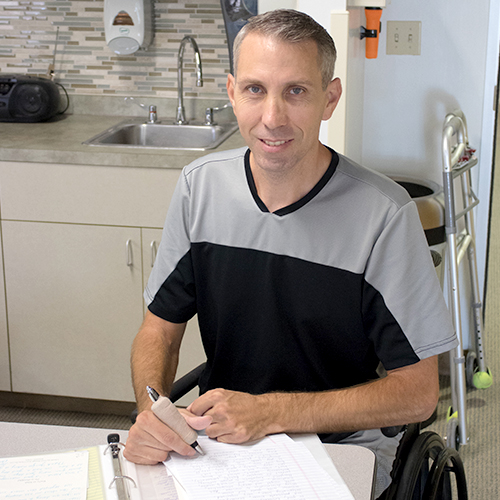Speech & Language Therapy
Learning to Communicate Post Injury
Reading a story to your child, expressing heartfelt words to a loved one, conversing with colleagues over lunch – these are gifts of speech we take for granted but are often diminished in those who endure a brain injury. Speech and cognitive deficits are among the most devastating realities that survivors of brain injury face. Without the ability to think and communicate, the goal of independent living is imperiled. Cognitive deficits such as decreased memory, poor concentration, and an inability to solve problems also impact an individual’s ability to return to school or work or complete the most basic activities of daily living. Some individuals may also have difficulty with basic skills like swallowing, forming words, or using their voice. These deficits can also place an individual’s safety at risk. Centre for Neuro Skills has been treating speech and cognitive disorders since its inception in 1980. Our intensive therapies focus on restoring communication and cognition essential for safety, returning to work or school, and community reintegration.
 Cognition Module Provides Intensive Rehabilitation
Cognition Module Provides Intensive Rehabilitation
CNS CEO Dr. Mark Ashley developed the Cognition Module, a clinical tool which addresses cognitive and linguistic processes, to restore communication abilities for persons with brain injury. CNS is the only rehabilitation facility to offer this all-encompassing treatment program. The Module is comprised of six robust and increasingly complex levels. It begins with the basic cognitive concept of identifying perceptual features of objects such as color, shape, and size. Therapists build on this foundation in exercises for patients who experience language impairments in memory, attention, problem solving, and categorization.
 Tailored Treatment Planning and Speech Therapy
Tailored Treatment Planning and Speech Therapy
- Patients are evaluated for speech and cognitive deficits caused by their injury
- A staff speech-language pathologist becomes part of the patient’s multidisciplinary team
- In clinical settings, speech and cognitive challenges are addressed through repetition of exercises, tools, and technologies that support improvement
- Patients practice and generalize skills with peers, staff, family, and the public in real-world settings
- Staff track speech progress and the treatment team modifies therapy as needed
- Families, stakeholders, insurers, and loved ones are updated frequently on patient progress/milestones
- Therapists, counselors, and case managers help families understand goals that address speech and cognitive impairments
Speech therapy at CNS is more than relearning how to speak. Clinical interventions may begin at the most basic level of sound development. From there, therapy fosters communication and cognitive skills that support a productive life after rehabilitation.

